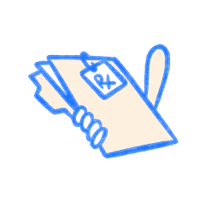Industry Overview
Current Job Market
The demand for specialized nursing roles, such as Certified Burn Registered Nurses (CBRN), is steadily increasing as healthcare systems recognize the need for specialized care in critical areas like burn treatment. According to the American Burn Association, there are approximately 486,000 burn injuries requiring medical treatment each year in the United States. This statistic underscores the necessity for healthcare professionals trained in burn care, making the CBRN credential a valuable asset in today’s job market.
Burn care nurses are in high demand in various healthcare settings, including specialized burn centers, trauma units, and emergency departments. The need for their expertise is particularly acute in regions with higher rates of burn injuries, such as areas with significant industrial activity or in locations with a high incidence of residential fires. The job market for burn care nurses is expected to grow as the population increases and the healthcare industry continues to expand.
Industry Challenges
Burn care nursing is a highly specialized and demanding field that comes with its unique set of challenges. Burn nurses often deal with patients who are in extreme pain, have life-threatening injuries, and require extensive, long-term care. The emotional and physical demands of the job can be intense, requiring nurses to maintain a high level of compassion and resilience.
A significant challenge in burn care is managing the psychological impact of burn injuries on patients, including trauma, anxiety, and depression. Burn care nurses must be adept at providing both physical care and emotional support, often working in multidisciplinary teams to address the complex needs of their patients. The stress associated with high-stakes environments like burn units can lead to burnout, making it essential for nurses to develop effective coping strategies. Furthermore, shift work is another common challenge in this field. Burn care units operate 24/7, meaning nurses often work night shifts, weekends, and holidays.
Career Advancement
Despite these challenges, burn nursing offers substantial opportunities for career advancement. Starting as a registered nurse in a burn unit, you can gain experience and pursue specialized certifications like the CBRN to enhance your expertise and credentials. With this credential, you can pursue advanced roles such as:
- Burn Unit Manager
- Clinical Nurse Specialist (CNS) in Burn Care
- Education and training roles
Additionally, some nurses may choose to further specialize by obtaining certifications in wound care or critical care, broadening their scope of practice and enhancing their career prospects.
For those looking to advance to even higher roles, such as a Nurse Practitioner (NP) specializing in burn care, the CBRN certification provides a strong foundation. The specialized knowledge and skills gained through the CBRN certification are highly valued in leadership roles within burn care units, making it a stepping stone for further career growth.
Work Environments
Certified Burn Registered Nurses work in a variety of settings, primarily within hospitals that have specialized burn units or trauma centers. These environments are highly specialized and equipped with the latest technology to manage severe burn injuries. Burn nurses may also find opportunities in:
- Outpatient burn clinics
- Rehabilitation centers
- Home care services
Additionally, some burn nurses work with humanitarian organizations, providing care in disaster zones or developing countries where burn injuries are prevalent and specialized care is scarce.
Credential Details
Credential Recognition
The Certified Burn Registered Nurse (CBRN) credential is offered by the Board of Certification for Emergency Nursing (BCEN®), a well-respected organization known for its rigorous certification programs in emergency nursing specialties. The CBRN credential is nationally recognized and serves as a mark of excellence in the specialized field of burn care.
Eligibility Requirements
- Current RN Licensure: Candidates must hold a current, unrestricted Registered Nurse (RN) license in the United States or its territories.
- Professional Experience: BCEN® recommends at least 2 years of experience in burn care nursing.
- Continuing Education: Although not required, completing continuing education courses related to burn care can help candidates prepare for the exam.
Cost and Financial Aid
The total cost of obtaining the CBRN certification includes:
- Exam Fee: Approximately $380; discounted to $285 for ABA members.
- Study Materials: Costs for study guides and courses can range from $100 to $500.
- Renewal Fees: Around $200, with additional costs for retaking the exam if needed.
Many employers offer financial assistance or reimbursement for certification exams. Additionally, scholarships and grants may be available through professional organizations like the Emergency Nurses Association (ENA).
Renewal and Continuing Education
- Continuing Education (CE): Completing 100 contact hours related to burn care or emergency nursing.
- Professional Practice: Demonstrating a minimum of 1,000 hours of professional practice in burn care during the certification period.
- Re-examination: Retaking and passing the CBRN exam to fulfill the renewal requirement.
Pass Rates
The CBRN exam is known for being challenging, with pass rates typically ranging from 60% to 75%, reflecting the advanced level of knowledge required in burn care nursing.
Job Roles and Responsibilities
Scope of Practice
As a Certified Burn Registered Nurse, your primary responsibilities include:
- Initial Assessment and Triage
- Wound Care
- Pain Management
- Fluid Resuscitation
- Rehabilitation and Recovery
- Patient Education
- Psychosocial Support
Salary Expectations
Burn nurses can expect to earn between $70,000 and $100,000 annually, depending on experience and location.
Work-Life Balance
Burn care nursing can be demanding, but it can also be highly rewarding. Developing strong time-management skills and having a support system outside of work can help maintain a healthier work-life balance.
Job Satisfaction
Despite the challenges, many burn nurses report high levels of job satisfaction, particularly when witnessing the positive outcomes of their care.
Specializations
- Pediatric Burn Nursing
- Burn Rehabilitation Nursing
- Wound Care Specialist
These specializations often require additional training or certification but can lead to even more rewarding career paths.
Begin Your Journey to CBRN Certification
The Certified Burn Registered Nurse (CBRN®) certification is more than just a credential—it’s a testament to your dedication, expertise, and commitment to providing the highest level of care to burn patients. In a field as specialized and challenging as burn care, the CBRN certification can significantly enhance your career, opening doors to advanced roles, higher salaries, and opportunities for further specialization.
While the journey to becoming a certified burn care nurse involves rigorous preparation and ongoing education, the rewards are substantial. Not only does the certification set you apart as an expert in the field, but it also equips you with the knowledge and skills needed to make a profound impact on the lives of patients during their most critical moments. If you’re passionate about burn care and ready to take the next step in your career, the CBRN® certification could be the perfect path for you.


